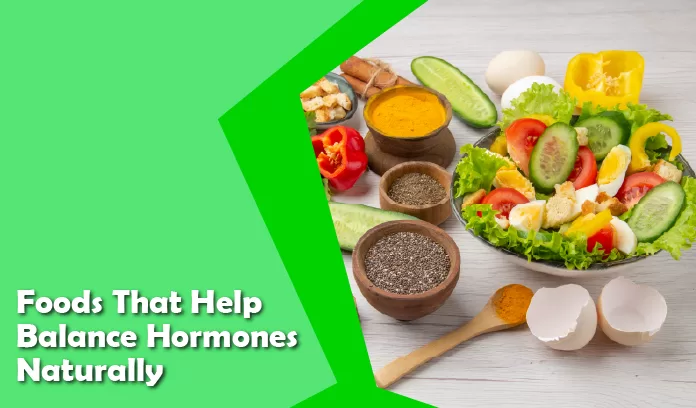Hormones play a crucial role in nearly every aspect of our health, from metabolism and energy levels to mood and reproductive function. When hormones fall out of balance, the body can experience symptoms such as fatigue, anxiety, weight gain, acne, or irregular menstrual cycles. Fortunately, the food we eat can have a direct influence on hormonal health.
Flaxseeds
Flaxseeds are rich in lignans and omega-3 fatty acids, which help regulate oestrogen levels in the body. They support healthy metabolism and reduce symptoms linked to hormone imbalance, such as PMS or hot flushes. Add ground flaxseeds to smoothies or yoghurt to enjoy their gentle hormone-balancing effects daily.
Avocados
Avocados contain healthy fats, fibre, potassium, and B vitamins, all of which support adrenal health and hormonal function. Their monounsaturated fats help regulate cortisol and support progesterone production. Including avocados in your diet can also support skin clarity, energy levels, and menstrual cycle stability in women of all ages.
Leafy Greens
Spinach, kale, and Swiss chard are packed with magnesium, calcium, and antioxidants that aid liver detoxification. A healthy liver helps process and eliminate excess hormones like oestrogen. Eating leafy greens daily can also help reduce inflammation, support thyroid health, and improve hormonal conditions such as PCOS or endometriosis.
Broccoli
Broccoli contains compounds such as indole-3-carbinol, which support the metabolism of oestrogen. This cruciferous vegetable helps remove harmful oestrogen by-products and assists the liver in maintaining hormonal balance. Eating broccoli regularly may reduce the risk of hormone-sensitive conditions such as breast cancer or fibroids in women.
Salmon
Salmon is rich in omega-3 fatty acids and vitamin D, which support hormone production and reduce inflammation. These nutrients are essential for adrenal and thyroid function. Regularly eating fatty fish like salmon can improve mood, reduce menstrual pain, and support insulin sensitivity for better hormonal harmony.
Chia Seeds
Chia seeds offer plant-based omega-3s and fibre that aid hormone balance. They help regulate blood sugar levels, reducing insulin spikes that can lead to hormonal acne or irregular periods. Chia seeds also support healthy digestion, which is essential for clearing excess oestrogen from the body efficiently.
Berries
Berries such as blueberries, raspberries, and strawberries are high in antioxidants and vitamin C, which combat oxidative stress that disrupts hormone production. They also help regulate cortisol and support the adrenal glands. Their low glycaemic index makes them ideal for stabilising blood sugar and managing hormonal mood swings.
Nuts and Seeds
Almonds, walnuts, pumpkin seeds, and sunflower seeds contain zinc, selenium, and vitamin E, nutrients essential for reproductive hormones. Seed cycling, a method of consuming specific seeds throughout the menstrual cycle, is said to help regulate ovulation and relieve PMS symptoms naturally without relying on synthetic hormones.
Eggs
Eggs are a hormone-friendly source of protein, healthy fats, and essential nutrients like vitamin B12, selenium, and choline. They support the production of hormones such as oestrogen and testosterone. Eggs also help stabilise blood sugar, which is crucial for keeping insulin and other hormone levels within healthy ranges.
Turmeric
Turmeric contains curcumin, a powerful anti-inflammatory compound that helps reduce cortisol levels and support liver detoxification. A healthy liver is key to regulating oestrogen and progesterone balance. Drinking turmeric tea or adding it to meals may help relieve PMS, perimenopausal symptoms, and chronic hormonal inflammation.
Conclusion
Balancing your hormones naturally does not require drastic changes. By making conscious choices to include hormone-supportive foods like flaxseeds, leafy greens and fatty fish while limiting processed foods and sugars, you can take a proactive step towards improving your hormonal health.


